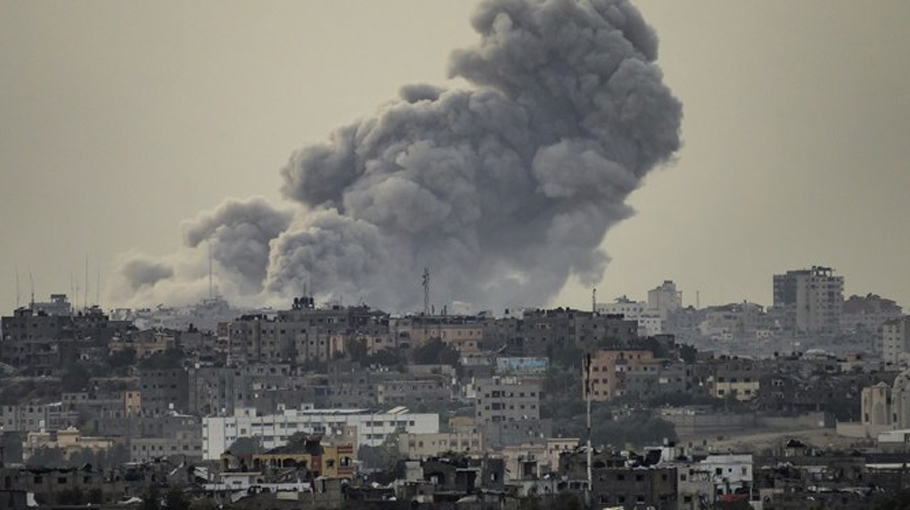Hateful rhetoric will remain a threat to hopes of peace

Could the Hamas-Israel conflict finally enter a new phase as a result of Wednesday’s deal to release 50 civilian hostages held by Hamas in return for 150 Palestinian prisoners detained by Israel during a four-day truce brokered by Qatar, Egypt and the US?
One would hope this agreement will pave the way for reason to triumph over the flood of hate that has been pouring out ever since Hamas gunmen killed about 1,200 Israelis, mostly civilians, during cross-border raids on Oct. 7 — the deadliest attack on Israel in its 75-year history. In retaliation, Israel launched a relentless bombing campaign and ground offensive in Gaza, the enclave ruled by Hamas, killing more than 14,000 people, many thousands of them children.
Such deals are usually riddled with uncertainties, especially in the case of Hamas and Israel. The cross-border attack and subsequent retaliation have added a new dimension to this existential conflict, namely the hateful rhetoric, extreme name-calling and inciteful references leveled against each other since Oct. 7. This has not previously been seen or heard of, at least publicly.
References by Israeli officials, journalists and influencers have crossed a Rubicon that threatens to make impossible any future climbdown that would allow the two peoples to coexist. “We are fighting human animals,” said Israeli Defense Minister Yoav Gallant. “We are fighting Nazis,” said Naftali Bennett, the former prime minister. Current Prime Minister Benjamin Netanyahu drew on the Bible to remind of ancient threats to the “Israelites,” when they faced calls to exterminate “men, women and infants.”
The cross-border attack and subsequent retaliation have added a new dimension to this existential conflict
Hamas’ narrative and rhetoric has been no better, as for years it has called for Israel to be wiped out and to “throw Israelis into the sea,” even justifying its violence, though this never reflected the mindset of all Palestinians. The fear is that, this time around, inflammatory rhetoric will take root and become mainstream. If that were to happen, it would need several generations to weed it out of hearts and minds and to pave the way for any possible peace settlement, which is the only way for Israel to ensure security for its citizens and for the Palestinians to have their right to a state and peaceful coexistence.
The inflammatory language could normalize the discussion of ideas that would have been off limits before Oct. 7. It risks becoming the new normal and further tearing apart peoples that have been condemned by geography to always live alongside each other. On one side, a right-wing and increasingly ultrareligious Israel talks of erasing the people of Gaza, the nuclear annihilation of the Strip and even ethnic cleansing. This is met with an equally hateful narrative from Hamas that celebrates the barbaric acts its militants carried out last month.
In times of crisis, experts often claim that people on both sides of a conflict feel the need to see matters in clear black and white, either “with us or against us” or “good guys versus bad guys.” This is because the masses often do not have the luxury of seeing things in all their multilayered complexities. Hence, leaders tend to up the tempo in order to rally the people and prepare them to make sacrifices. This often leads to dehumanizing the “other” — in Israel’s case, that is the people of Gaza, along with the further mistreatment of Palestinians in the West Bank and even Palestinian citizens of Israel, who could face mistreatment in the long run.
Legitimizing hateful rhetoric will be a major obstacle that makes turning the wheels back nearly impossible.
Language is, unfortunately, a double-edged sword: it could help to relieve and contain the anger today, but become an obstacle tomorrow. And while the international community continues to try to grapple with ways of ending the conflict, starting with the hostage exchange and humanitarian truce, many have been hard at work discussing ideas about the day after a ceasefire. They have raised the possibility of forming a multinational force, rehabilitating the Palestinian Authority in Ramallah and enabling it to govern Gaza, tabling a plan for a UN-type protectorate in Gaza, or simply re-imagining a formula for a new two-state solution.
While the actual war and the accompanying war of words, propaganda, fake news and manipulated or doctored “realities” continue to be waged on all actual and virtual fronts, major fears remain about the possibility of the conflict further inflaming the volatile situation in the West Bank and dragging in other actors in the Middle East. The best way to ensure Israel’s security is through the establishment of a Palestinian state, as EU foreign policy chief Josep Borrell said this week.
My fear remains that legitimizing hateful rhetoric will be a major obstacle that makes turning the wheels back in the Israeli-Palestinian conflict nearly impossible. It will likely require a reeducation that might yield fruit for future generations, but only if done properly.
One can only hope, therefore, that the initial truce and hostage exchange will instigate a reimagining of the peace process. An internationally brokered formula to help impose a cessation of violence, temporarily, is maybe the easy part, however difficult it might seem at the moment. But the damage caused by the inciteful rhetoric in the wake of the Oct. 7 attack is likely to plague both peoples for the foreseeable future.
Mohamed Chebaro is a British-Lebanese journalist with more than 25 years’ experience covering war, terrorism, defense, current affairs and diplomacy.
Source: Arab News



